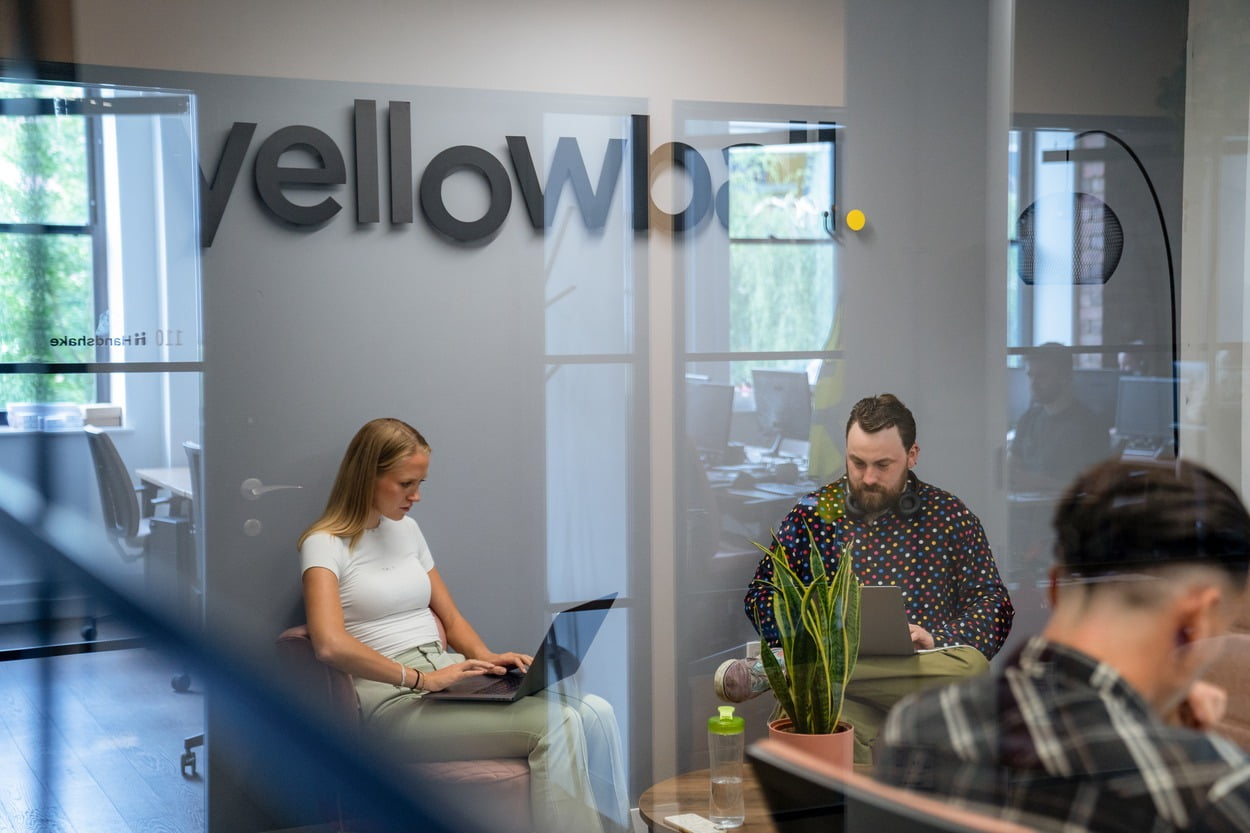What is link building in SEO?
The practice of link building is based upon the concept that a link pointing from one website to another acts as a vote or as an endorsement. Hyperlinks create a tangible relationship between websites and Google uses these votes as one of the many factors taken into account when ranking a website. For a purely link metric perspective, the more numerous, high authority and relevant links that a website has pointing to it the more likely it is to rank towards the top of Google. Obviously there are a couple of hundred more factors that go into ranking a website but links are certainly a major topic for SEO campaigns.
Link building practices have changed dramatically over the past decade. Pre 2012 many businesses engaging in SEO focussed on gaining as many backlinks as possible, regardless of the quality or relevance contributing to a search environment that was heavily tarred by linkspam. In early 2012 Google took significant action against this now mainstream world of link spam by releasing their now infamous Penguin Update. The algorithmic update focussed on identifying and penalising websites that engaged in link spam, acting as a significant deterrent for those considering black hat link building tactics.
Our modern age of search engine optimisation is far removed from the days of yesteryear. More and more websites are au faux with link building practices and content distribution platforms get countless requests for solicited content on a daily basis. This increased knowledge around the tactics used by SEOs along with the considerable shadow of an angry Penguin poised and ready to punish any misdemeanours has meant that traditional (legitimate) is getting harder and harder. In fact, many would consider the highest quality link building campaigns to be more akin to PR than SEO. Furthermore, with websites utilising social media and a heavy weighting towards content creation, the concept of link earning is gaining momentum in the SEO world. Link earning should definitely be in an SEOs repertoire and part of the overall SEO strategy but we would still argue that there is space for a high quality link building campaign. They can be incredibly effective and are to an extent more proactive at producing results than link earning.
Has the Penguin Update killed link building?
First things first. This is a guide on White Hat link building. Building links from link directories and spammy guest blogs or creating reciprocal links and link networks is not White Hat link building. There are a couple of ways in which you can tell very quickly if what you are doing would be considered spam:
- Is the link of value to anyone?
- Is the link giving site/blog been set up purely to provide backlinks?
- Is there a chance that if you had not contacted the site, that they would have included a link to you naturally (if they had read your own content)?
If your answers were no, yes, no then we would advise walking away.
Bear in mind that the term ‘organic link building’ is an oxymoron. There is nothing organic about link building, it is the proactive identification of websites that are relevant to yours and the soliciting of content or ideas to them. However, just because it is proactive does not mean that it is spammy. Think of link building as brand exposure to the right people or a friendly nudge so that they acknowledge your contribution to the industry, sector or whatever it is you might be involved in. As long as you have a quality website that offers real value to the traffic that it attracts then there is nothing wrong with a White Hat link building campaign.
How to generate backlinks
First of all you need to make a note of all the websites that you want to target as part of your link building campaign. Note that part of the terminology change has seen more and more people refer to this process as ‘blogger outreach’ rather than the more tarnished term of link building.
There are a number of starting points to get you on your way. Remember, as with anything to do with SEO it must be focussed around relevance and value.
- If you are a reseller or have a business relationship with other websites then they can be an immediate source for links
- Client website or customers with blogs are a useful source for links via reviews or testimonials
- Blog or websites that you may read for industry information
You can also use all of the search tools available to you, not just Google. Search via other sites, social media or Youtube to help identify other relevant websites. - Use backlink checkers to assess your competitor’s backlink profile and to see if there are any websites that you should also be targeting.
- Remember that gaining a link from websites that rank for search terms that you are looking to rank for are likely to be of high value to your link building campaign.
If you feel that the website is relevant to yours, is of good quality and the users of said website would find your website and/or content of genuine use then there should be no reason why it wouldn’t be a target for your link building campaign.
Make note of all of these websites. We advise people in our SEO training sessions to use a spreadsheet which documents the name of the website, domain name, contact information (including main person to contact), whether you had contacted them and if so what content did you suggest, when you contacted them and what their response was. This is because link building campaigns can take a considerable amount of time and as such you are unlikely to contact all of the websites in one sitting. Make a note of their details and come back to them at a later date!
How to outreach
Everyone has different styles for making contact and how they would prefer people to make contact with them in the first instance. As such, whilst this is far from a one size fits all technique, it is one that has produced the most positive responses over the years. Phone numbers are sometimes difficult to get hold of so let’s stick to email correspondence. Businesses receive email spam from SEOs on a daily basis – usually starting with ‘Greetings of the Day!’. It is imperative that you avoid having your email fall into this category. We find that if you treat the person like a human being rather than the embodiment of a company or website, you tend to get far better results. In reality this advice can be used on a far wider marketing spectrum than just link building!
Either way, we strongly suggest that you make the email as personable as possible. Do your research – have they written for the website? If so, find one of their articles and refer to a specific part of that article to demonstrate that you are not a spambot and are in fact a real human…just like them. Your aim is to not only show that you are not just aimlessly link building but also establish your credibility as a potential source of information for their website traffic. Establishing your credibility and developing a personable touch will immediately differentiate you from the vast majority of emails that they will be receiving.
We also strongly advise against any mention of backlinks. It is becoming a dirty word and associated with spammers. Simply suggest that you would love to contribute an article, it is then important that you suggest an article and explain why it would be of interest to their readers. Just another step in establishing your credibility. Furthermore, there is a growing sentiment in the SEO world that whilst there is no denying the power of a link, that co-citation and co-occurrence contribute towards the authority of a website as well.
Many link builders would even advise against mentioning any solicitation of content in the first email. The aim is to build a rapport with the other person and to demonstrate to them that you are not just out for a backlink but instead want to improve the profile/exposure of both yourself and your company and that you can offer some real insight into a particular subject. We often prefer to take a more honest approach, focussing on delivering the following in our link building emails: a human touch, real credibility and real value. If you can include those 3 factors into an email that someone will most likely receive out of the blue then you give yourself a much better chance than sending out generic blanket emails to loads of websites.
It is important that once the website has agreed to review some of your content that you not only make it as good as it could possibly be but also make sure that it is delivered in a timely manner. There is often a certain amount of momentum needed in link building and you must retain your rapport with whoever it is you are dealing with.
How to gain the backlink
How do you go about ensuring that for all of this effort of identifying websites, contacting them, building a rapport and creating awesome content for them to post on their site, that you do not get left high and dry without a link? The short answer is that if you do not explicitly ask for a link then there is no way of 100% guaranteeing one. However, there are a few things that you can do to lend some persuasion to your cause:
- If your content is an in depth analysis of a subject then it is likely that you will have referenced other material within the article. There is nothing to say that you can’t reference your own material if it is useful for the reader!
- Include an author profile as part of your submission. Within that profile you can legitimately include a link to your website.
- As part of your referencing you can mention to your contact that this particular blog post or page on your website gives additional information on a particular topic.
At the end of it you may well find that they include a link but is a no follow link. Do not be disheartened. If the website is of high enough quality then not only should you benefit from co-occurrence, you will also benefit from PR like exposure to their readers. Gaining a backlink is the primary goal of a link building campaign, but there are multiple other exposure based benefits!
Persistence is Key
As with just about everything about SEO, link building is rarely an instant success. One good link is useful but more than one is…well…more. You will need to find what works for those in your industry and what doesn’t work. This will take some experimentation and failure so we would advise saving the really juicy targets till you have nailed down a format that has the most success. Whatever you do make sure that you keep at it. These things take time but the relationships you build will pay dividends in the future, both in an SEO sense and also in terms of developing a network and brand exposure.
Read more: SEO glossary
















